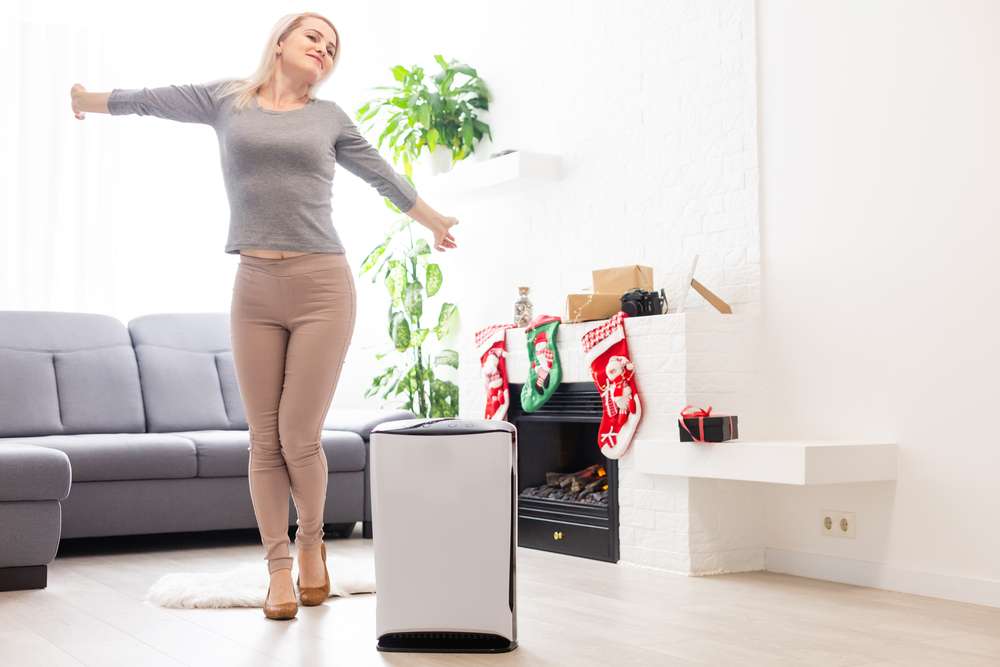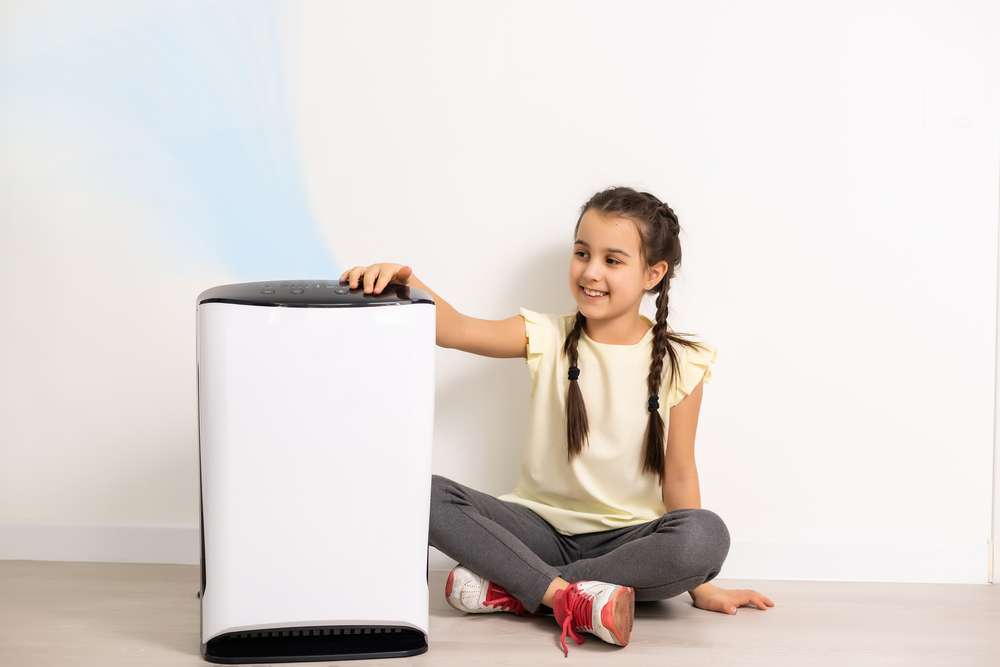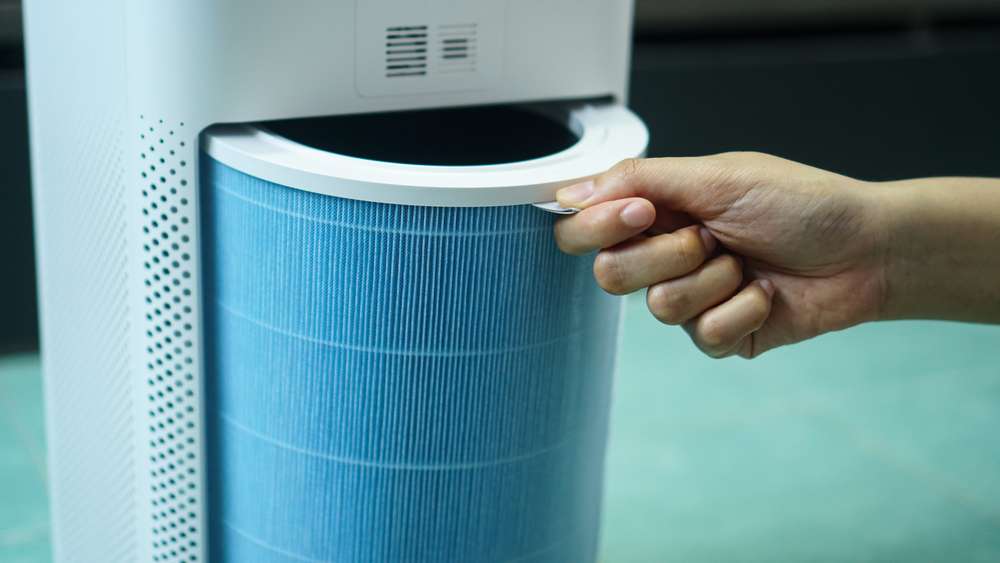Air purifiers are pretty great machines, but they’re not perfect. Like anything, they have their downsides. In this article, we’re going to explore those downsides as well as the upsides. So, what are the air purifier pros and cons we’ve got for you?
To start with, air purifiers actually do clean the air. That’s worth mentioning, especially in this day and age when all sorts of technology trends pop up that don’t actually do what people claim they do. Air purifiers remove lots of pollutants from the air and, as a result, they can improve our health. There are different types of air purifiers and also plenty of helpful extra features too. Air purifiers have plenty of helpful research to help you to make an informed choice, they don’t dry the room or cool the air, they can remove smells, and they’re not just for use at home either. Those are some pretty great air purifier pros, but now come the cons. Air purifiers can get expensive, you will need to replace filters or clean the air purifiers, there’s confusing marketing around “High-Efficiency Particular Air” or HEPA filters, and certain types of air purifiers create ozone, which is harmful to our health.
Before we dive a little deeper into each of those areas though, let’s do a quick overview of air purifiers, just in case you’re not familiar.
An Overview Of Air Purifiers

Air purifiers are relatively simple machines. They use a fan to suck in the surrounding air, filter that air through one or more filters (or more advanced pieces of technology), then let it back out. Obviously, there’s more to an air purifier than this, but, on a basic level, that’s what they do.
The nice thing is that inside that simplicity, air purifiers have lots of options. There are different types of air purifiers with different types of air purifying technology. There are air purifiers of different shapes and sizes, air purifiers that can draw in more air, air purifiers that can clean the air of larger rooms.
Ultimately, should you choose to go with an air purifier, just know that there are many available options. Every person’s situation is a bit different, so don’t feel like you have to go with the first model you see.
With that said, it’s time to look at what makes air purifiers great, and also what makes them not so great.
Air Purifier Pros

1. They Clean The Air
This seems like an obvious statement, but air purifiers are good at what they do. Perfect? No. But they do clean the air, and depending on what kind of air purifier you get, they do it safely and well. Your best bet would be an air purifier with a true HEPA filter (see more on the confusing marketing about HEPA filters in the cons section), but other types may serve you well depending on your needs and manufacturer safety regulations, and component quality.
When it comes right down to it though, air purifiers do purify the air. They’re not a hoax, they’re not being overhyped: they do purify the air. This brings us to our next point: what they take out of the air.
2. Removing Lots Of Pollutants From The Air
According to the EPA, indoor air is two to five times more toxic than outdoor air. One of the biggest reasons why is because indoor air needs to be refreshed or cleaned in some way, otherwise the pollutants that make it inside build up since they don’t have anywhere to go.
These pollutants can include particles such as dander, dust, pollen, bacteria, and spores. It should go without saying, but we want as little as possible of this in our lungs. Gases can be a problem too, some of which can be taken care of by air purifiers with activated carbon filters. Interestingly, some plants can help with gases too.
All of this helps boost our health.
3. They Can Improve Your Health
So, what do all those pollutants do to us anyway? It’s possible you may not notice any problems at all. We’re all built a little differently, after all. Or, the levels of air pollution in your area may not be currently causing any noticeable symptoms. But you may also notice issues like irritated eyes, nose, or even lungs. You may have asthma and be looking for a way to reduce the symptoms.
Air purifiers can help improve those issues. While more studies need to be conducted, at least one study has proven that air purifiers help us in a number of ways, especially those with asthma.
4. Research That’s Actually Helpful
Speaking of studies, one of the best pros for air purifiers is that there is a ton of research available to you. There are plenty of articles on this site to help you make informed purchases, but you can check out organizations like the United States Environmental Protection Agency or EPA, National Center For Biotechnology Information or NCBI, and more too. We want you to feel comfortable with your decisions and research can help with that. This is especially true when you’re ready to purchase an air purifier because of the different types that exist.
5. Different Types Of Air Purifiers
When talking about air purifiers, there are four main types. There are filter air purifiers, ultraviolet air purifiers, electrostatic precipitators and ionizers, and ozone generators. We go over each of these in more detail here, and we cover their pros and cons too. The thing is, those aren’t the only types of air purifiers that exist. There are larger air purifiers, budget air purifiers, air purifiers that you can put on your desk or in your car. You can even get air purifiers for your whole house. Not all of these are recommended, and you’ll have to figure out which one works best for you, but there’s an air purifier for whatever your situation is.
6. Helpful Extra Features
Many of those air purifier types come with a variety of extra options that makes them even more useful or easy to use too. One is that many air purifiers are portable. Some are so small they can be taken with you on trips. Others are built with wheels so they can be moved from room to room. You can have one at home and one in the office, if you want.
They also don’t take much to operate. With the simple push of a power button, they’re on.
Some air purifiers will have fan speed settings, which allow you to determine how much air is drawn through your air purifier at a time. These aren’t difficult to use either. Some air purifiers will also provide information on air quality, and there are air purifiers that can connect to your phone.
When it comes to those helpful extra features, air purifiers have what you need.
7. Air Purifiers Only Affect Air Pollutants And Nothing Else
There are some common myths that go along with air purifiers. Two of those are that air purifiers dry out a room or cool it down. This isn’t true in either case because they don’t have the technology needed to do so.
In the case of cooling the room though, it can slightly feel like an air purifier is cooling down the room due to the fan it uses. Like a real fan, this isn’t actually cooling down a room, it just feels like it. It doesn’t hurt as an added bonus though.
8. Some Air Purifiers Can Remove Smells
This is specific to activated carbon filters, but if you purchase an air purifier that has one, they can filter out some gases from the air. This will remove some odors from the space they’re purifying.
Now that we’ve gone over the pros, it’s time to go over the cons.
Air Purifier Cons

1. Air Purifiers Can Be Expensive (For Several Reasons)
Depending on what kind of model and size you get, air purifiers can get expensive. This starts with the cost of the air purifier itself. There are cheaper models, some can even go for under $100, but some can also go for over $1,000.
That’s just the base cost though. If you get an air purifier that has filters, at some point you will need to replace those filters. It’s recommended to replace your filters according to manufacturer recommendations. No matter when you replace them though, it will still cost money to do so.
There’s also the electric bill cost to factor in. Even if you get a small air purifier that uses a USB port to charge, it will still draw power and it will still increase your electric bill. The cost won’t necessarily be massive, but knowing this going in is important, especially because it’s recommended to run air purifiers 24/7 so they can be at their most effective.
2. Replacing Filters And Cleaning Purifiers
If you buy an air purifier with filters, they will need to be replaced. When they need to be replaced depends on what type of filter it is, but we recommend going with manufacturer recommendations.
Some air purifiers also require cleaning. If you get an air purifier with a washable filter, for example. Electrostatic precipitators or ionizers, which use similar technology to clean the air, have collecting plates. Collecting plates are sheets of metal that help draw particles out of the air, which means that they will need cleaning to keep them able to do so. We recommend doing so according to manufacturer recommendations.
3. Confusing Marketing Around HEPA Filters
HEPA filters are incredible filters. They have the highest rating among residential filters out there, and for good reason too. They can filter particles, at worst, at a size of 0.3 microns in diameter, with an efficiency of 99.7%. For reference, human hair is about 70 microns in diameter, although that’s just an average.
Those are only true HEPA filters though. There are also HEPA-type or HEPA-like filters. They’re the same thing, so we’ll call them HEPA-type for now. HEPA-type filters are cheaper to make and, as a result, only filter, at worst, particles that are 2 microns in diameter at a 99% efficiency. So, they’re similar to true HEPA filters, but not enough to actually be called just HEPA filters, hence the HEPA-type name.
In the end, this isn’t a huge con, but you will need to check the air purifier you’re buying to make sure that, if it has a HEPA filter, it’s a true one.
4. Certain Types Of Air Purifiers Can Create Ozone
Unfortunately, there’s more than one type of air purifier that can create ozone. Ozone, if you don’t know, is a gas that can be harmful to human health. The types that can create ozone are ultraviolet air purifiers, electrostatic precipitators, ionizers, and ozone generators. Only ozone generators create it on purpose, which is why they’re not recommended for use outside of special circumstances and where people won’t be present. The others can create it, so it’s recommended to check manufacturer recommendations for safety measures.
Final Thoughts: Air Purifier Pros And Cons
So, should you get an air purifier? As with many things, that depends. Air purifiers are not perfect machines, but they really do help us in a pretty important way. If you’re not feeling convinced by our air purifier pros and cons though, feel free to check out some of our other articles on the site. We’ve linked some throughout this piece, but there are plenty more that can help you make your choice. So, what do you think? Are air purifiers sounding worth it to you? Why or why not? Let us know in the comments below!

